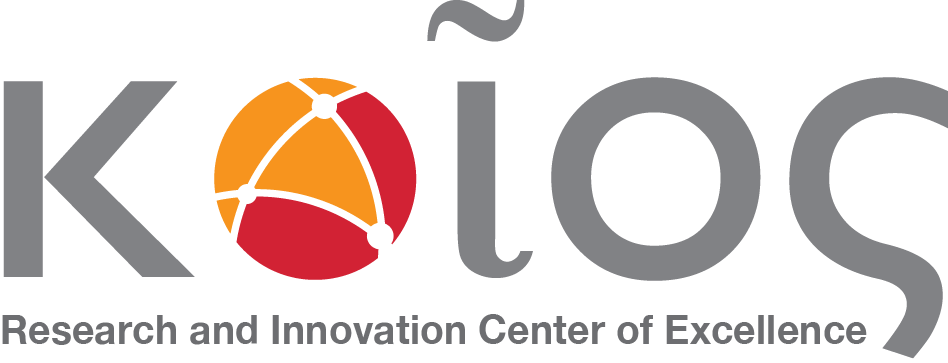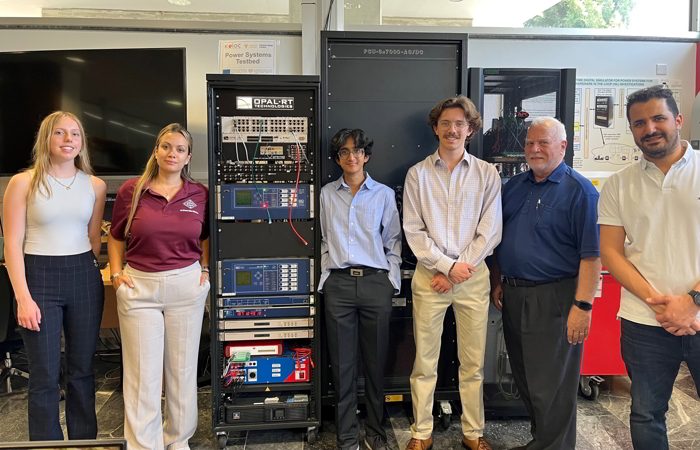Four students from the Sensor Signal and Information Processing Center (SenSIP) at the Arizona State University (ASU), spent 5 weeks during summer 2023 at the KIOS Center of Excellence (KIOS CoE) at the University of Cyprus (UCY), working on a collaborative project related to machine learning for solar energy systems, as part of the International Research Experiences for Students (IRES) program.
The IRES program is supported by the U.S. National Science Foundation (NSF) and focuses on active research participation by undergraduate and/or graduate science and engineering students in high quality international research, education, and professional development experiences.
The students Brent Brightwell, Fiorella Yasmin Estrada, Salil Naik, and Emma Skaggs, along with their Professor Andreas Spanias, were engaged in collaborative research with KIOS faculty and researchers in the area of sensors and machine learning for solar energy monitoring performance, forecasting and anomaly detection applications. Through this research collaboration they gained not only technical knowledge but also the cultural experience of conducting research abroad.
Motivation for participating in the program
Students applied to the program mainly because it combines research, machine learning training, and cultural experiences. The program gave them the opportunity to explore their host country (Cyprus) while at the same time learning about their field of study.
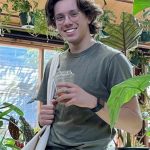 Brent Brightwell, a student in the School of Electrical, Computer and Energy Engineering (ECEE), applied to this program because he loves to travel and experience different cultures, but also because he wanted to make sure that he was still doing something related to engineering. “This program gave a study abroad type experience while being a great way to travel, see new cultures, gain experience, and network with others”, he stated.
Brent Brightwell, a student in the School of Electrical, Computer and Energy Engineering (ECEE), applied to this program because he loves to travel and experience different cultures, but also because he wanted to make sure that he was still doing something related to engineering. “This program gave a study abroad type experience while being a great way to travel, see new cultures, gain experience, and network with others”, he stated.
Salil Naik, a student in the School of Computing and Augmented Intelligence (SCAI), said: “I decided to join this program because it let me conduct research in the field I’m passionate about while giving me cultural exchange experience”.
Emma Skaggs, a student in the School of Electrical, Computer and Energy Engineering, joined the program for two main reasons. She said: “I was interested in research as a possible career path and wanted to see how it compared to corporate life. I was also drawn to the program because of the opportunity to travel to another country and be immersed in a new culture”.
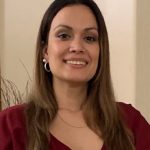 Fiorella Yasmin Estrada, also a student in the School of Electrical, Computer and Energy Engineering, was interested in participating in the program because she wanted to enrich her knowledge in machine learning.
Fiorella Yasmin Estrada, also a student in the School of Electrical, Computer and Energy Engineering, was interested in participating in the program because she wanted to enrich her knowledge in machine learning.
Conducting international research
The collaborative NSF IRES project between Arizona State University and the University of Cyprus has been running successfully for 4 years and promotes international multidisciplinary research at the overlap of sustainability, power systems and signal processing with the aim of improving efficiency in PV power generation. Towards this end, U.S. students were trained in producing and understanding solar analytics and creating algorithms and software to control solar arrays. All the students were co-mentored by ASU SenSIP and UCY KIOS mentors. The engineering mentorship teams consisted of Andreas Spanias and Glen Uehara (from ASU SenSIP), and Lenos Hadjidemetriou, Christos Laoudias, Maria Michael, and Charis Theocharides (from UCY KIOS).
During their pre-training period at ASU and later at KIOS students received training on quantum computing and more specifically on designing quantum simulations of machine learning systems. All students used quantum computing simulations to detect faults on solar panels. Their mentors Glen Uehara from General Dynamics and Andreas Spanias worked closely with them, and students presented comparative results of quantum vs classical machine learning. They presented their results at the 15th Cyprus Workshop on Signal Processing and Informatics (CWSPI) in Nicosia to an audience of graduate students, faculty, and industry professionals. The students also worked with KIOS faculty on projects dealing with cybersecurity, in power systems and autonomous vehicles.
“I gained a great amount of knowledge about developing a machine learning algorithm and to be able to be part of conferences”, mentioned Fiorella.
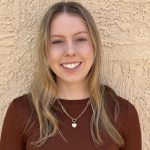 Emma also stated: “Through my research, I learned about classical and quantum machine learning and how to apply that knowledge to real-life problems. I was exposed to sensor/signal processing and learned some of the fundamentals of power systems”.
Emma also stated: “Through my research, I learned about classical and quantum machine learning and how to apply that knowledge to real-life problems. I was exposed to sensor/signal processing and learned some of the fundamentals of power systems”.
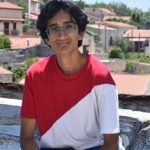 In terms of improving their research skills, Salil said that he gained more experience in conducting research and the steps to writing a research paper. “Before this program, I had no experience in research, he admitted”.
In terms of improving their research skills, Salil said that he gained more experience in conducting research and the steps to writing a research paper. “Before this program, I had no experience in research, he admitted”.
Brent said that his research skills have been improved in many different ways, as he got much better at communicating his ideas and his research to others. “Through the different presentations and opportunities, I was able to learn how to gather all information in a compact and direct format that allowed me to communicate my ideas effectively”.
Gaining a cultural perspective
Students enjoyed their stay in Cyprus, as they had the opportunity to visit historical sites, beaches, and learn more things about the culture and lifestyle of Cyprus. They have also received a comprehensive culture/language/history seminar from Dr. Stella Hadjistasou, Research Associate at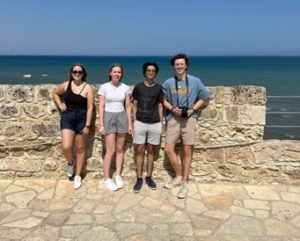 KIOS. The students visited historical sites in Larnaca, Limassol and Paphos, including the Larnaca Medieval Castle, the ancient Kourion theatre and the Tombs of the Kings in Paphos. Furthermore, in Nicosia, they visited the Archbishop Palace which also houses Byzantine museum and the Pancyprian Gymnasium which is the oldest operational high school in Cyprus (founded in 1812).
KIOS. The students visited historical sites in Larnaca, Limassol and Paphos, including the Larnaca Medieval Castle, the ancient Kourion theatre and the Tombs of the Kings in Paphos. Furthermore, in Nicosia, they visited the Archbishop Palace which also houses Byzantine museum and the Pancyprian Gymnasium which is the oldest operational high school in Cyprus (founded in 1812).
According to Brent, “a month’s time gave us plenty of opportunity to explore all areas of the island and see the different parts of life here on the island.” Brent also commented on how they liked the restaurant food and ambiance in various locations in Cyprus.
During their stay, students also met with the UCY Rector, Prof. Tasos Christofides, and discussed opportunities for research collaboration between the two Universities.
The IRES program is funded by NSF award 1854273.
